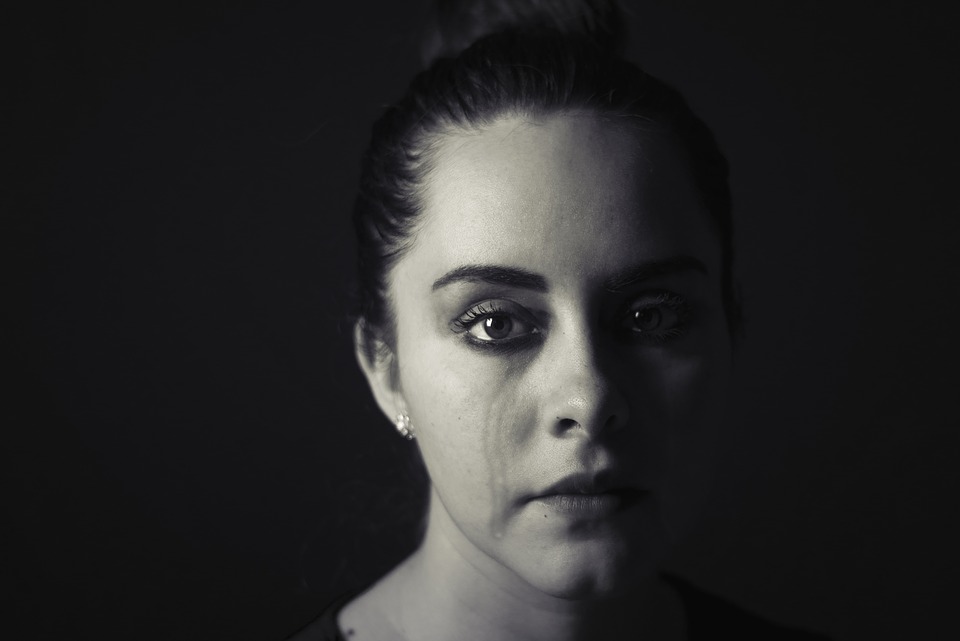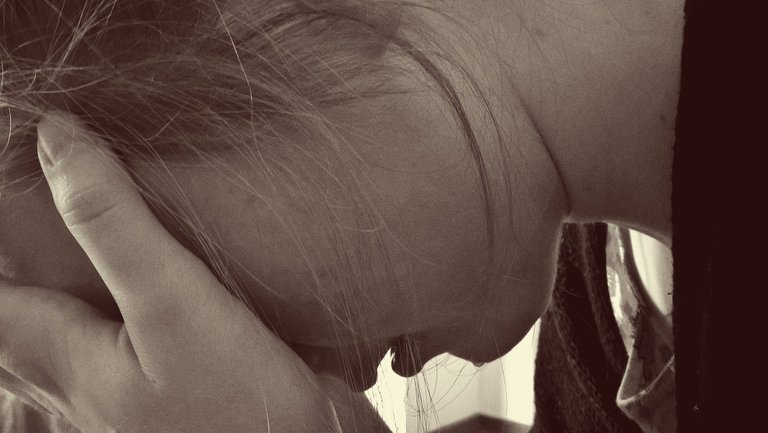Psychology Chronicles Series #28: On Clinical Depression & Emptiness | It is More Than Sadness

“There are wounds that never show on the body that are deeper and more hurtful than anything that bleeds.”
― Laurell K. Hamilton, Mistral's Kiss
Last week I applied for promotion and part of the initial process of getting escalated in my current job is to pass the interview. I was very nervous because I was not ready to answer questions at that time - maybe because I had too much coffee or maybe I was scared of running out of words. The first part was awkward and nerve-wracking, I was hoping I could get out of that situation right away as I felt my hands were beginning to be sweaty. In my CV, I had included on the educational background that I am currently finishing my masters degree in Clinical Psychology. This piqued the interest of one of the member of the panel and decided to throw a question related to my degree. She asked:
"Why is dealing with depression so difficult?"
As soon as I heard the question thrown at me, I had dead air for a second before I gave an answer to her.
"I hope it is easy to quantify things that doesn't occupy space and mass. "
" It's a wonder that uncovering the roots of mental illness has always been difficult. Not only is the brain the most complex organ in the body, but it's also harder to study. It is hard to deal with its basic invisibility and this particular illness can envelops peoples lives and shrouds them in their own dark shadow.
After the interview I contemplated on my answer. I wrote down a note in my mobile phone stating that I will write an article about depression on my next blog. I want to tell people to try to fall in love with their lives by reading my post. I know this illness is just like the weather. People who suffers from depression should know that there are people like me who will try to understand the blackness, lethargy and emptiness they’re going through. It is important that we are always be there for them when they come through the other side. It’s hard to help someone deal with it, but it is one of the kindest, noblest, and best things we can ever do to help.
"Why Depression Isn't Merely Sadness"

Depressive symptoms include persistent sadness, anxiety, or emptiness; feelings of hopelessness ; and feelings of guilt, and worthlessness. A person suffering from depression experience loss of interest or pleasure in hobbies and activities that they once enjoyed. Decreased energy, fatigue, or a sense of being "slowed down" are also common, as are restlessness, irritability, and difficulty concentrating, remembering, or making smart decisions. Many sufferers of depression have thoughts of suicide.
People with depression have symptoms of disruptions in sleep (insomnia, early morning awakening or oversleeping) and in eating behavior (appetite changes, weight loss or gain). Physical symptoms may include headaches, digestive disorders, and chronic pain.
We all experience an occasional sad mood. However clinical depression is a different case. It is a more pervasive experience of repetitive dark rumination, blurry outlook, and lack of enthusiasm. It is not a sign of individual weakness or a condition that can be pushed away whenever we want to. People with depression cannot merely "pull themselves together" to get better from this illness. According to them no matter what they do, the stain of emptiness lingers and stays with them despite their efforts to feel okay.
"Biology of Depression"

Biology of Depression highlights the Overexcitability of the stress response system, shifts in activity of different neurochemicals in the brain, declined efficiency of nerve circuitry and nerve generation, disruption in energy use nerve cells, the interference of inflammatory substances in the brain, upsets in the brain’s 24-hour (circadian) clock—all play different roles in depression onset or progression and affects the kind and severity of symptoms of the illness.
According to the article Depression and Anxiety Disorders Damage Your Brain Two major sections of the brain—the hippocampus (seat of memory) and the cortex (the thinking part of the brain)— experience shrinkage. Both the size of nerve cells and the number of their linkages with other neurons are decreased. At the same time, depressive symptoms is associated with the overactivation of the hypothalamus, which coordinates the stress response, and overactivity of the amygdala, which signals threat and produces negative emotions.
Reduced activity in the prefrontal cortex, which controls and regulates emotional signals coming from the amygdala, is responsible for the difficulties in decision-making and the cognitive distortion that depressed people experience.
"The Link Between Suicide and Depression"

Many people have fleeting thoughts of suicide when facing difficult moments in their lives. However, these are merely thoughts. Depression on the other hand, impairs such cognitive flexibility. It influences our patterns of thinking, pulling us down with our negative ideations.
Those with depression tends to overthink. They ruminate on all the setbacks they’ve encountered, all rejections and losses, all difficult childhood experiences, and are weighed down even further by all lingering negativity. In addition, depression magnifies the experience of pain. Those with depression are especially likely to see suicide as their last resort to escape their suffering. The most obvious warning sign of suicide is when sufferers talk about wanting to die. And the best way to determine whether suicide is a risk is to ask.
Take all suicide red flags seriously. Your involvement and support may help save other people's life.
Don’t be afraid to ask whether a significant other is thinking of suicide, is depressed, or has problems. Talking about it won’t make the person act on their feelings. It might actually help ease their negative thoughts -- and lets you know if that person need's help.
Encourage that individual to talk to a mental health professional as soon as possible.

References:
1. What Is Depression?
2. Depression and Suicide
3. The Biology of Depression
4. Depression and Anxiety Disorders Damage Your Brain
5. Suicide Warning Signs: What to Watch for and Do
Images:


Really informative my friend. Great article.
Thanks jen. Looking forward for your travel posts!
Thank you for sharing this post and I am glad that I am able to find another one who writes about the psych stuff. Keep it up!
Thank you too for reblogging my content. I've read your post too https://hive.blog/hive-122675/@tpkidkai/what-to-do-when-you-are-unhappy-with-your-job amazing post by the way! After reading your post I've realized how important self-care is. I can relate because right now I'm really stressed with work.
Yay! 🤗
Your content has been boosted with Ecency Points, by @tpkidkai.
Use Ecency daily to boost your growth on platform!
Support Ecency
Vote for Proposal
Delegate HP and earn more
Thank you @ecency